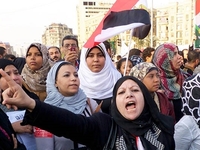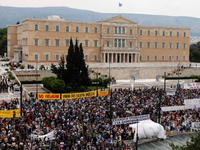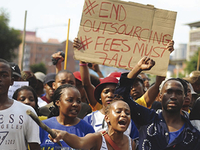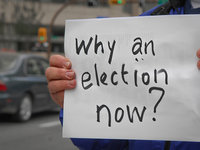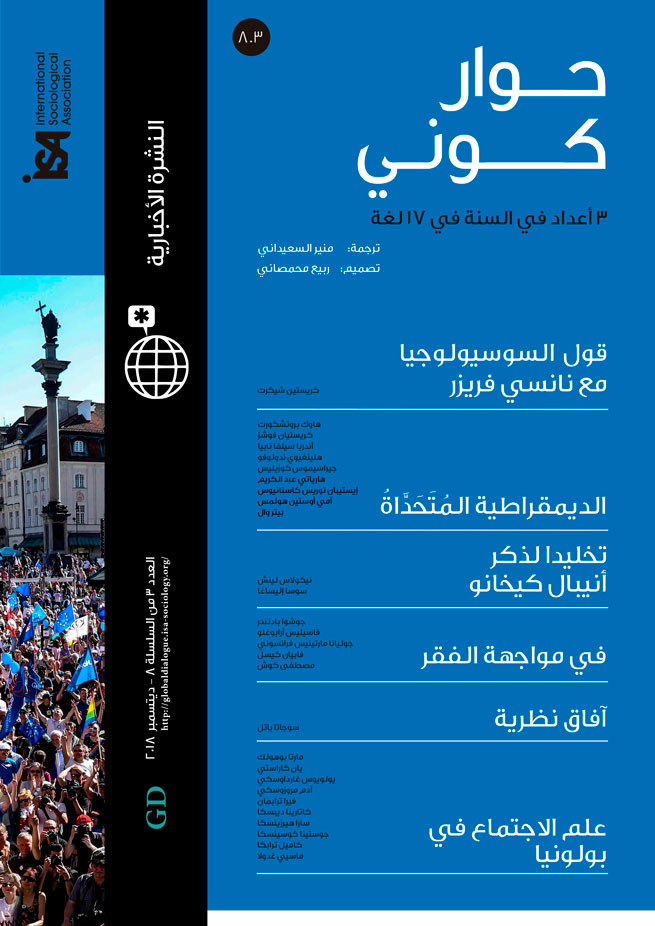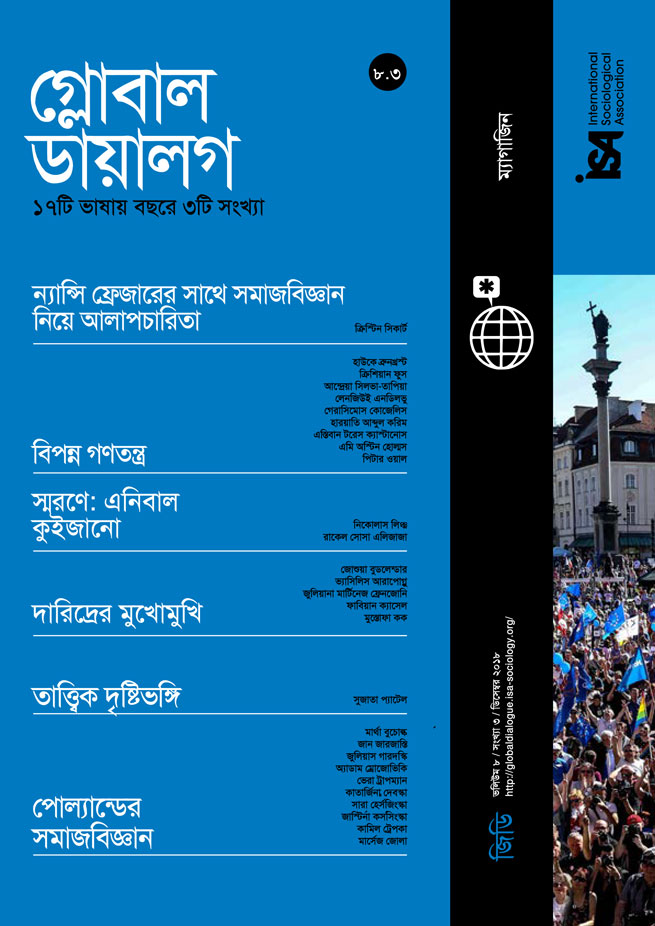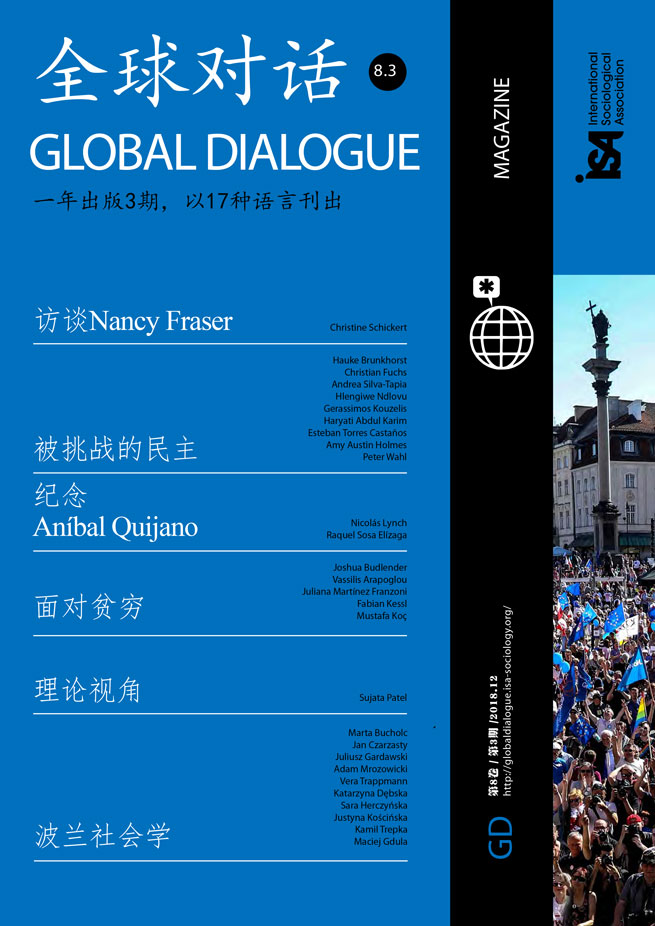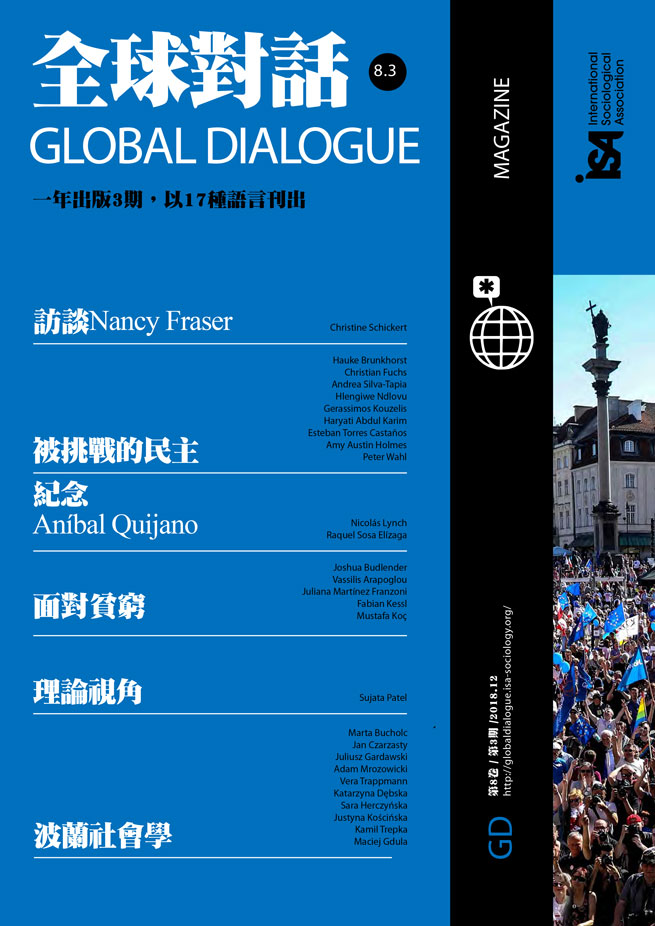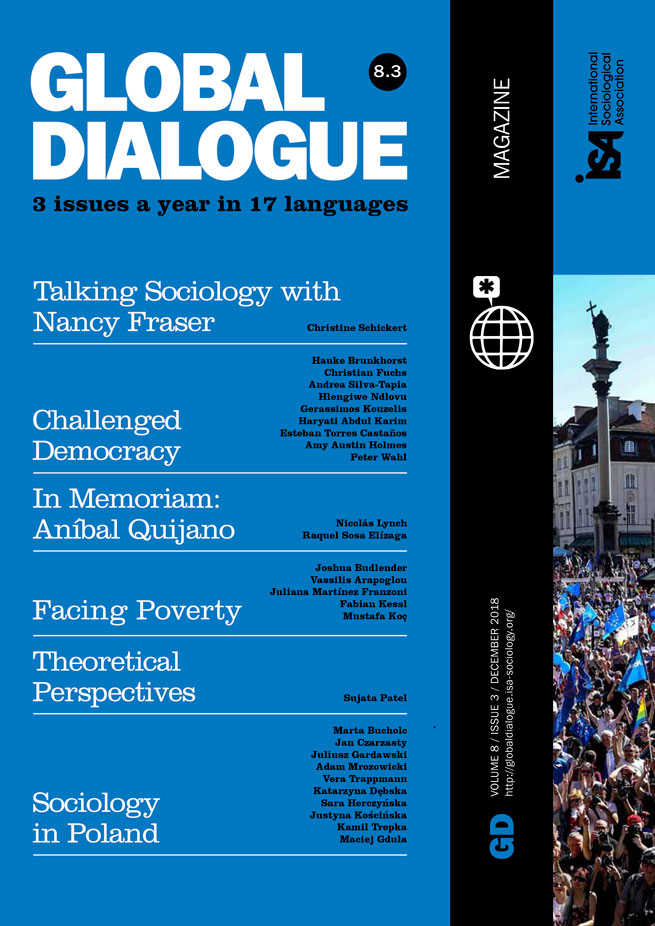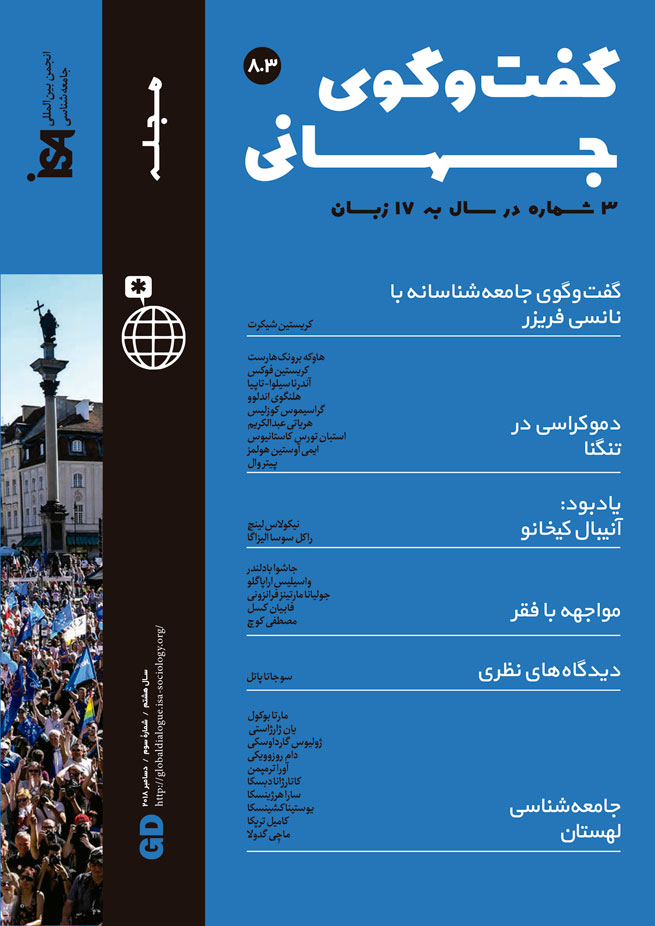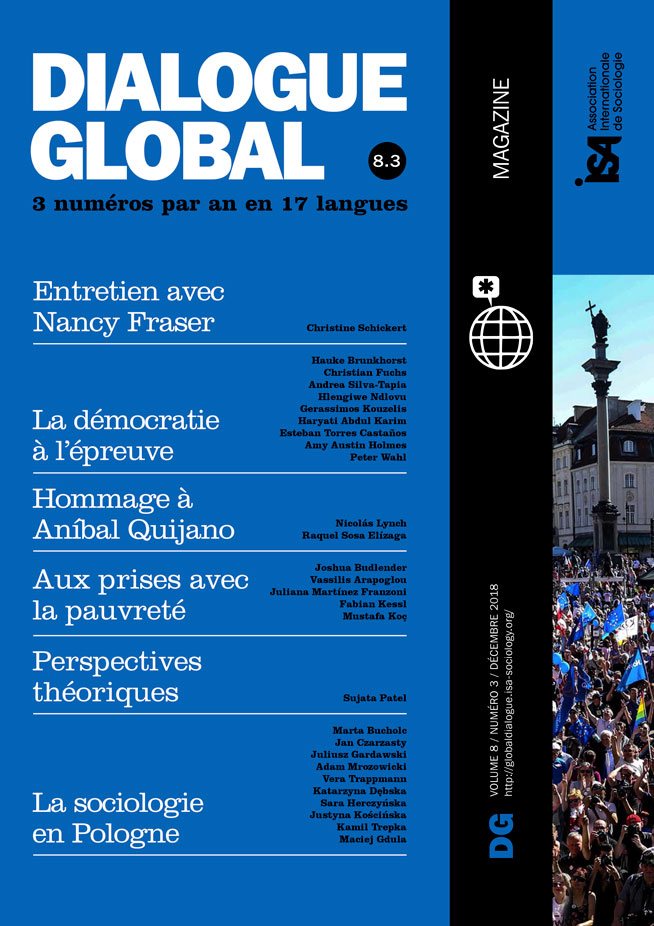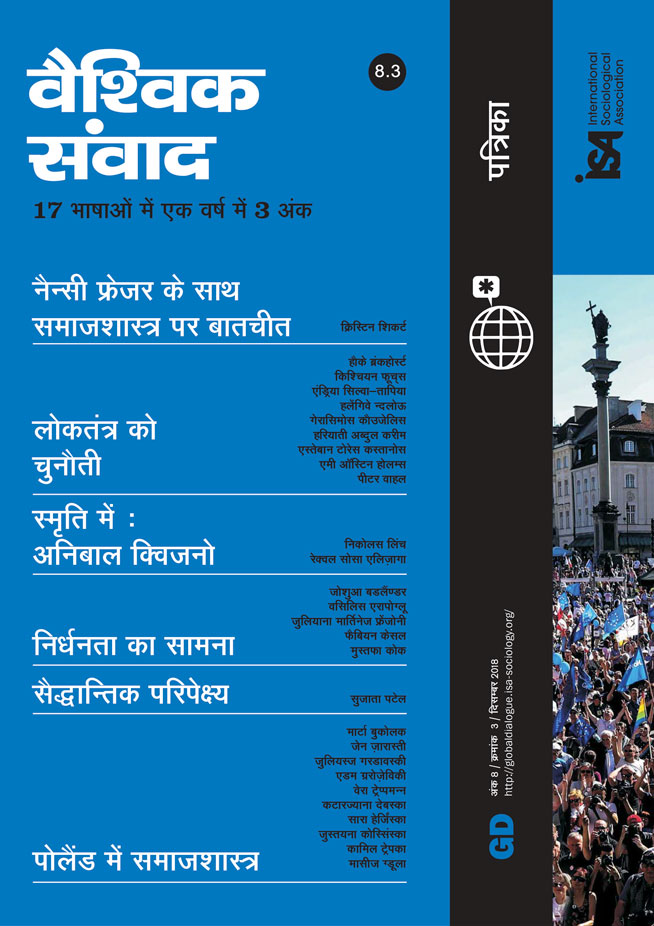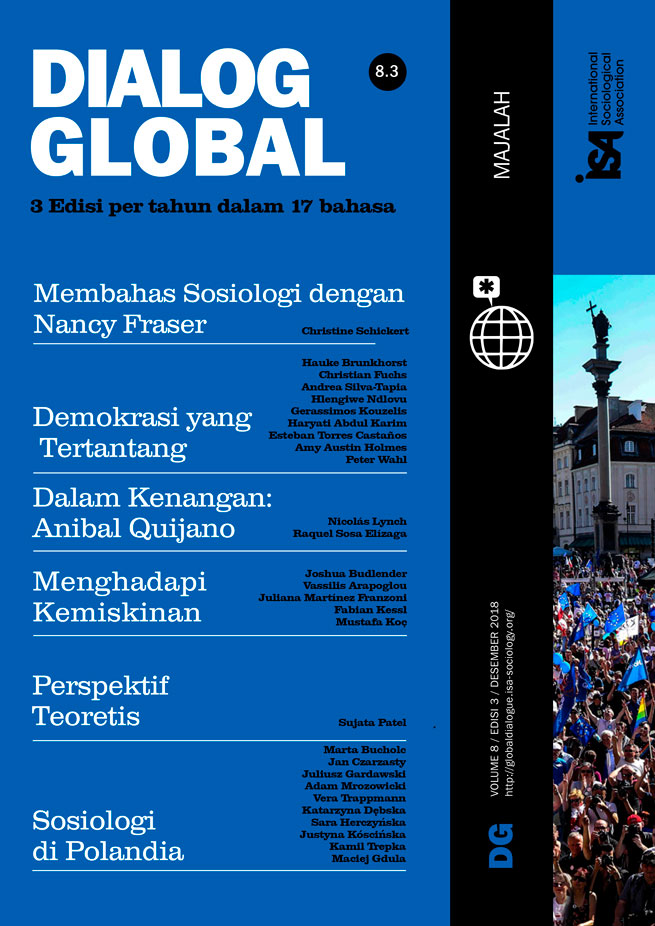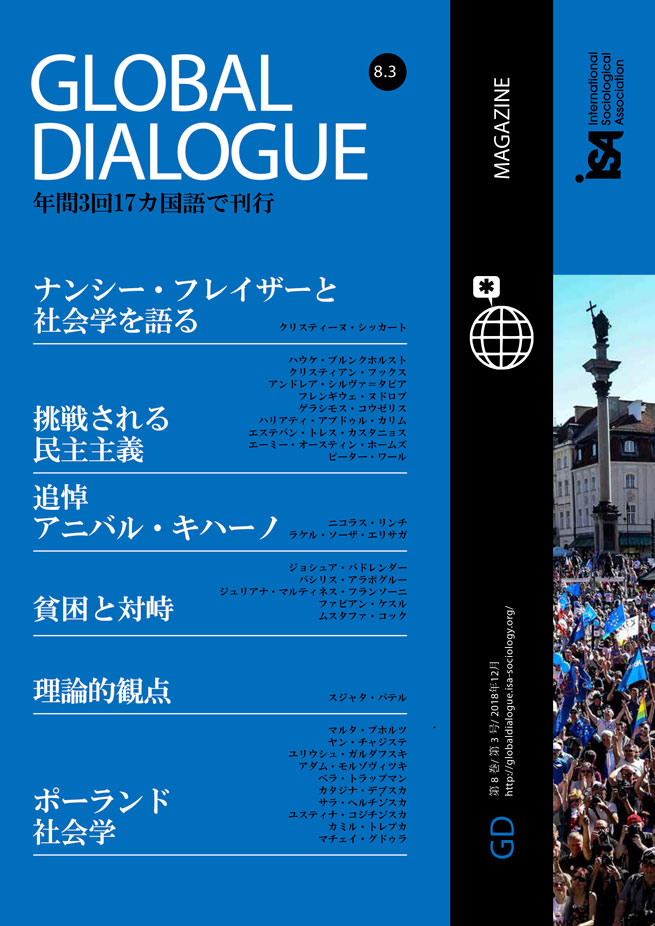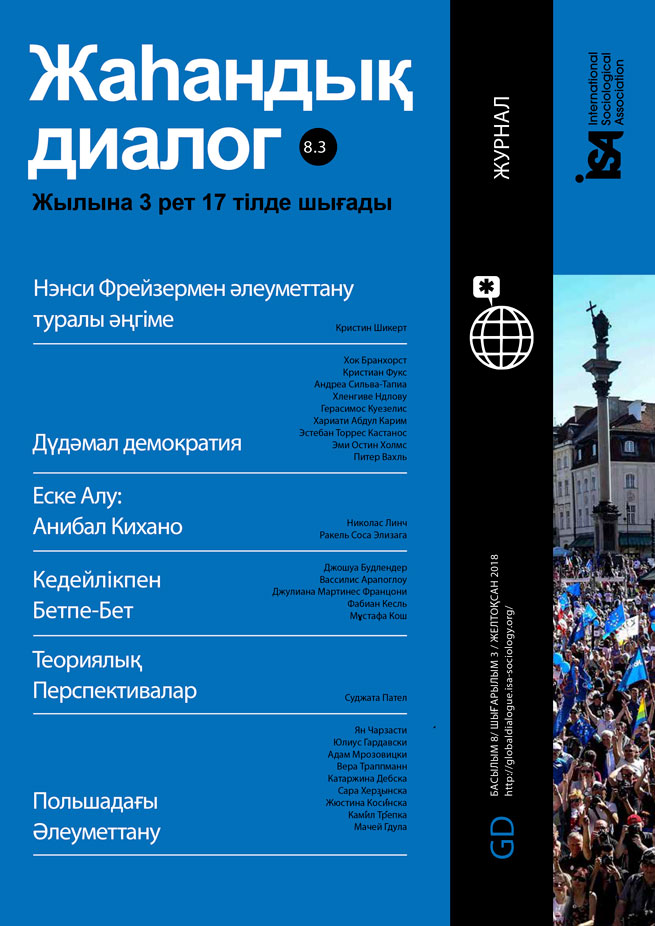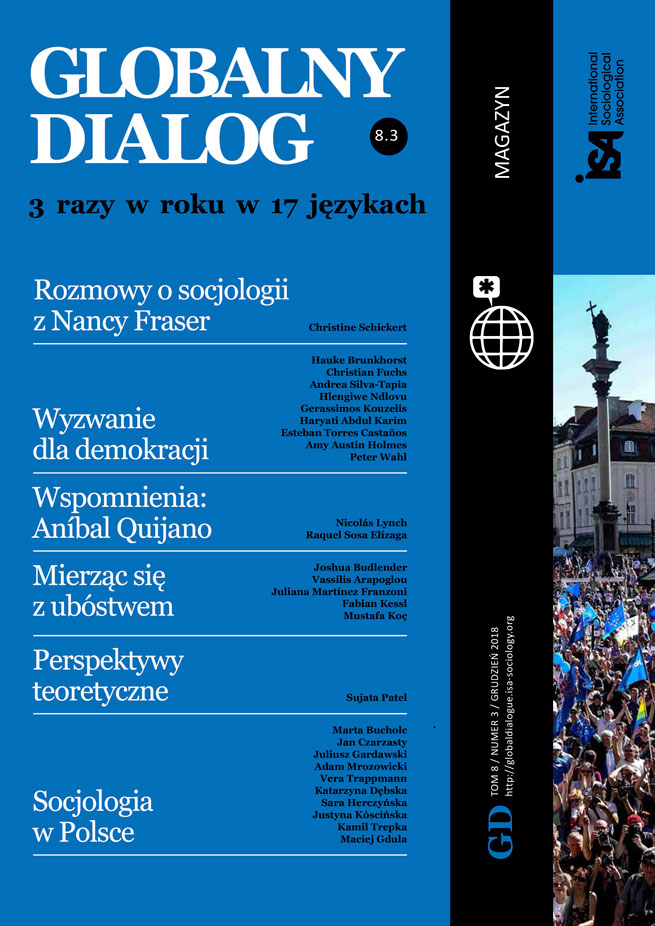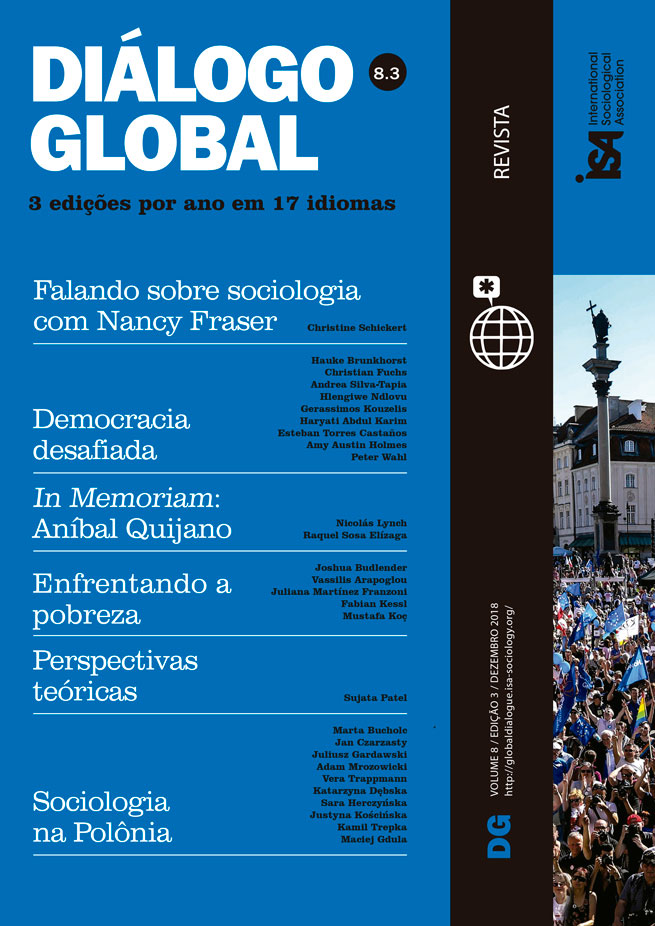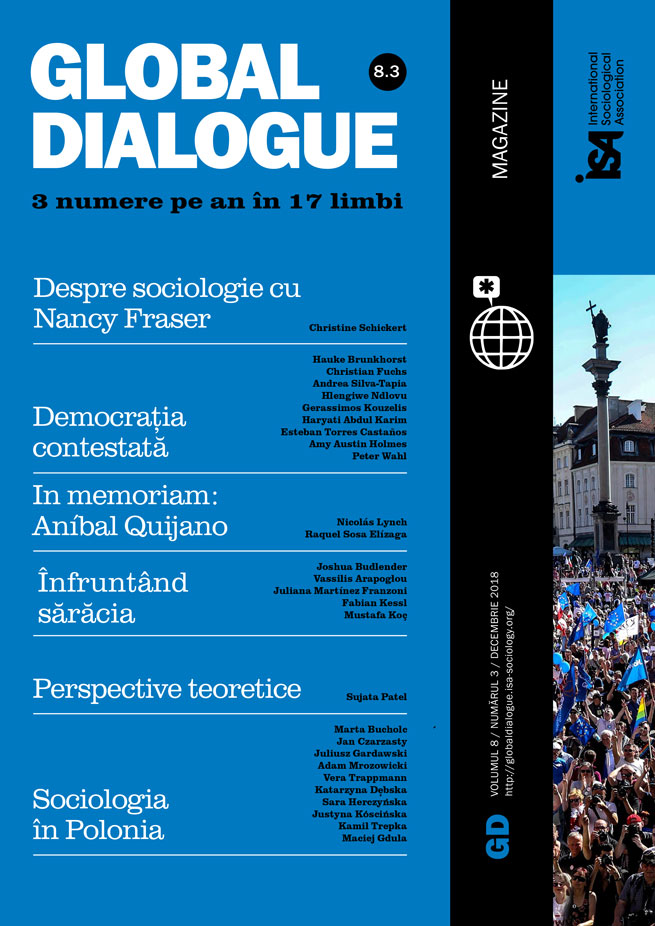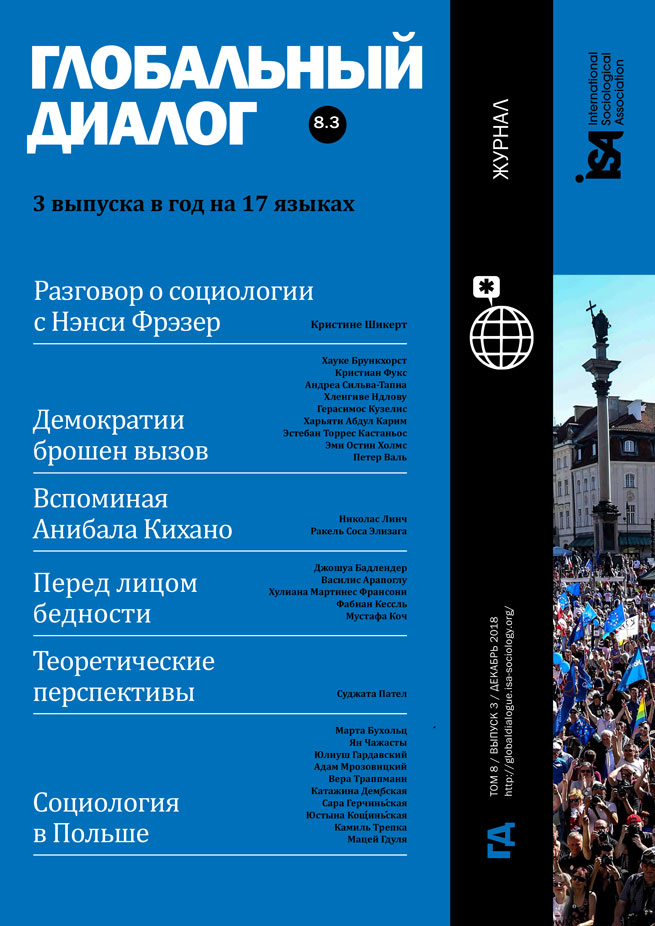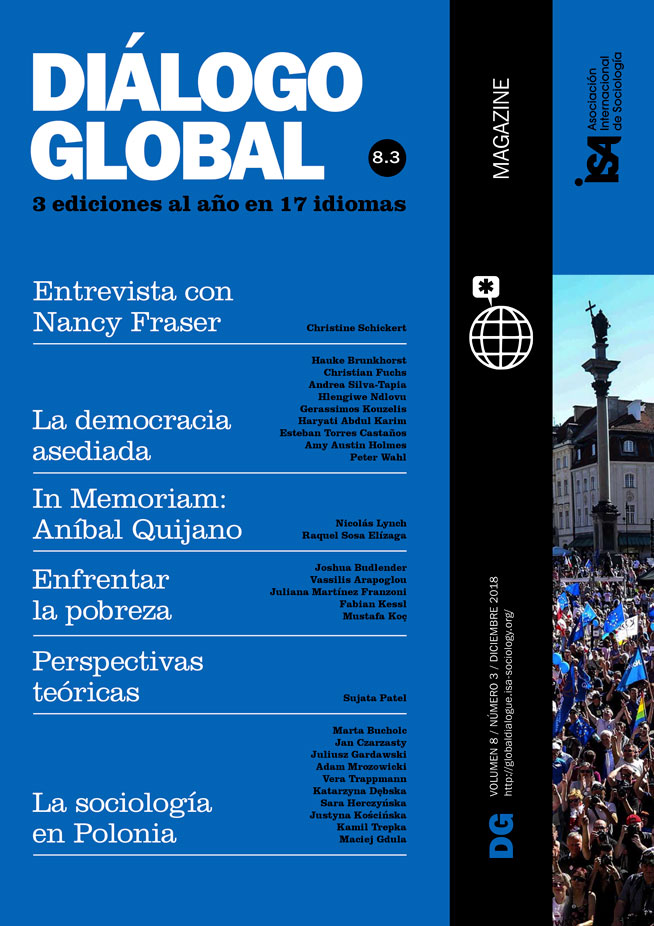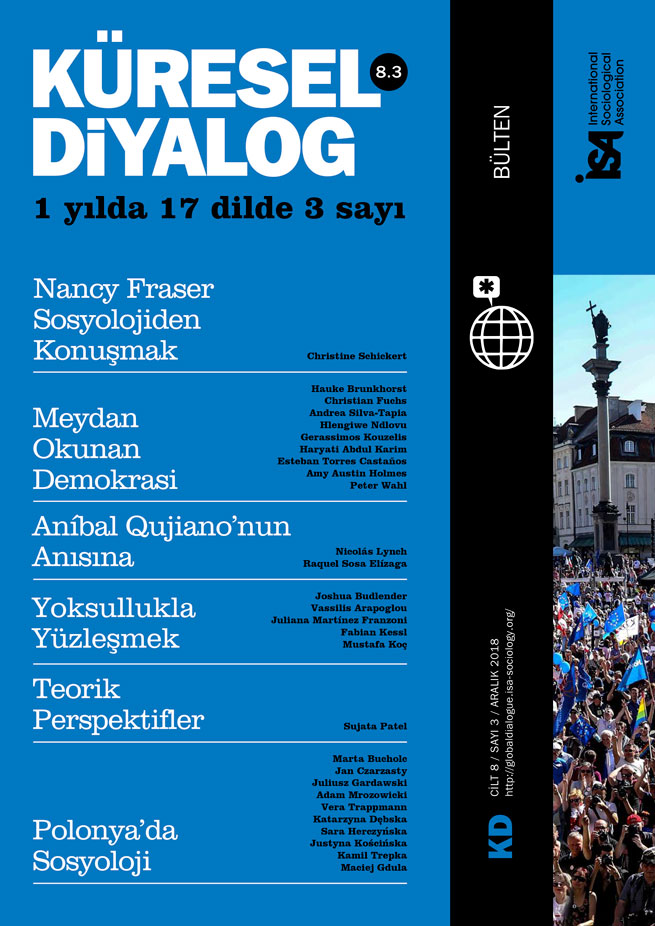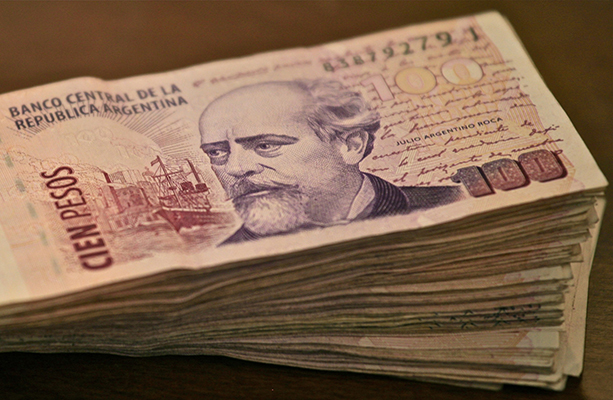The Argentine Republic is experiencing a remarkable retreat of democracy. The extension and complexity of this retreat is difficult to understand if using the theories of democracy that, with the collapse of the military dictatorships, have become the dominant analytical frameworks for left and progressive forces in the country and in Latin America. Contemporary democratization, understood as a social process of expansion of the forces of public appropriation, is comprised of three critical vectors: a techno-political vector, a techno-economic vector, and a techno-communicational vector. Each of them consists of a handful of dimensions. Here I would like to simply describe the key events that have been precipitating the structural retreat of democracy in Argentina in 2018. These events are associated with the political repressive dimension of the abovementioned political vector and with one of the paramount dimensions of the techno-economic vector for a peripheral country: the degree of autonomy of the state to define its macroeconomic policy.
As regards the political repressive dimension, the two main events that reinforce each other are 1) the national executive power’s decision to establish, by decree, a doctrinal and functional transformation of the Armed Forces and 2) the support from the government itself to establish US military bases in different parts of the national territory.
Regarding the first event, the pillar of the transformation that the executive power promotes with Decree N° 683/2018 is the authorization for the Armed Forces to be able to perform homeland security tasks. With this, the barrier between homeland security and national defense gets practically dissolved, which reinforces the government’s intention to criminalize the social protests that have been expanding throughout the country since the victory of Cambiemos (the ruling coalition) in December 2015. With this measure, Mauricio Macri’s government seeks to put the Armed Forces at the service of an “anti-drug trafficking and anti-terrorist program” through which it fully aligns with the US foreign policy agenda. With the implementation of this new decree, Decree N° 1691/2006 is abolished, and the legal framework consisting of the National Defense Laws (1998), the Homeland Security Laws (1992) and the National Intelligence Laws (2001) is meant to be fractured. These regulations, the result of three decades of democratic expansion, were built from multiparty consensuses unprecedented in their magnitude in national history.
Regarding the second event, the government is promoting the establishment of US military bases on Argentinean land, whose technical direction is in the hands of the US Southern Command. Three locations have been identified so far: the Triple Border (Argentina, Brazil and Paraguay), Tierra del Fuego (Ushuaia) and the province of Neuquén. Both events get reinforced by a third: the arrival of US troops on national territory this year, to carry out joint exercises with local forces. As the authorities from both countries have declared, those exercises are being performed with the aim of offering information “against weapons of mass destruction trafficking.” The arrival of foreign troops requires the authorization of the National Congress, but such an authorization has not been requested by the ruling party.
Along with these events, it is necessary to pay attention to a second series of events that has caused, in record time, the national state’s total loss of autonomy to formulate macroeconomic policies. I refer to the external hyper-indebtedness policy that Macri’s government has been displaying. The two key indicators here are the evolution of the external debt vis-à-vis the GNP of Argentina and the characteristics of the commitments made with the creditors. As regards the former, it is possible to observe that Cambiemos has triggered the fastest growth of external debt in national history within the framework of a new regime of financial value. Under Kirchner governments (2003-2015), state economic policies aimed to reduce external indebtedness through taking a hard line in negotiations with creditors. The relative success of such negotiations allowed for the promotion of the productive economy. To a great extent, it also allowed for the abandonment of the 1976-2001 model of financial value. From December 2015 onwards, Macri’s government has returned to a compulsive external indebtedness as a key means to relaunch the system of financial value. The ratio of external public debt to GNP has been increasing since 2011, when it represented 14.2%, its lowest level since the restoration of democracy in 1983. From that moment onwards, the debt has started to grow, and has soared under Macri’s accelerated hyper-indebtedness policies until reaching 65.5% of GNP in June 2018. Thus, the indebtedness coefficient in Argentina has gone from low to difficult-to-manage levels in record time. The total issuance of debt in local and foreign currencies has reached the equivalent of almost USD 133 billion, which has turned the country into the biggest sovereign debt issuer among the emerging economies of the world for the period 2016-18.
Regarding the relationship with creditors, the main event in this new cycle of indebtedness is the decision to reestablish the subjection link with the International Monetary Fund (IMF) after fourteen years of having settled debts with that organization. The return to the IMF is materialized with the request of a standby loan. The novelty of this large loan (USD 50 billion) when compared with former standby loans signed by Argentina and the IMF is that not only tax and monetary targets but also inflation will be supervised this time. In this way, Macri’s presidency practically delegates the management of the national economy to the IMF. In so doing, it becomes the executing hand of the monetaristic neoliberal adjustment program requested by the IMF.
The policies of homeland militarization and express hyper-indebtedness are eroding national sovereignty and causing massive resistance and demonstrations throughout the national territory. The opposition forces involve a broad spectrum of social actors that are damaged or excluded from society by this regressive social transformation. Although the relationship of power between the advocates of democratization and the advocates of the new regime of globalized private macro-appropriation is remarkably unequal in favor of the latter, the national political future in the medium term is unpredictable. It is necessary to bear in mind that it is not enough to simply describe the current process of democratic erosion. The point is to explain the phenomenon from a multidimensional perspective of democracy subsumed into a new social theory of appropriation and sociohistorical change. Such an explanatory device will allow us to redefine a new left program of social change that addresses the social game of appropriation into which we are immersed. We will have to achieve it before it is too late for democracy.
Esteban Torres, National University of Cordoba and the National Scientific and Technical Research Council (CONICET), Argentina <esteban.tc@conicet.gov.ar>

